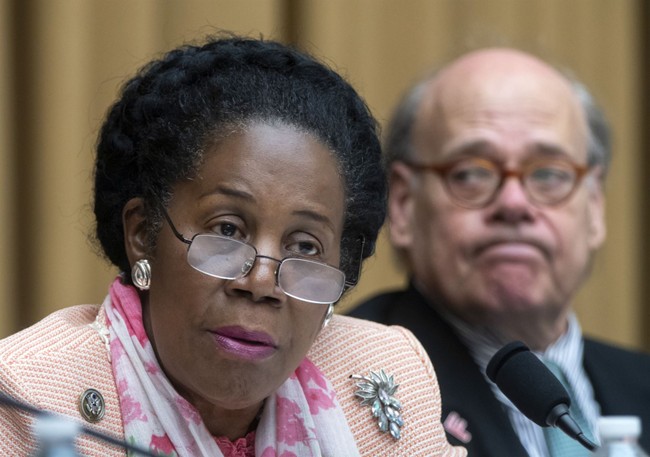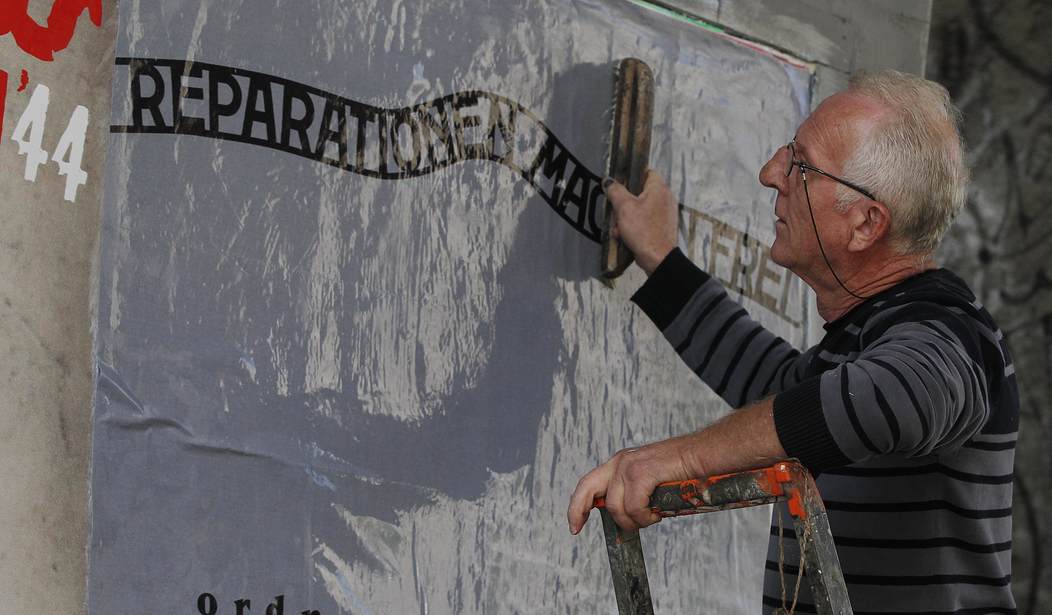Calls for slavery reparations in America, and in other countries like Britain, aren't a new concept. In fact, calls for reparations here in the United States predate the American Revolution. The first example of reparations for slavery was in 1783 when former slave Belinda Sutton petitioned the state of Massachusetts for unpaid income from her former owner's estate. Slavery Reparations have been a talking point and even campaign slogans for several Democrat politicians like Congresswoman Sheila Jackson Lee and other liberal pundits like former pro triathlete Max Fennell.

Black politicians need to stop demanding reparations and focus on accountability pic.twitter.com/Ncrho7IJnX
— Sharika Soal 🇺🇸 (@SharikaSoal84) August 24, 2023
Nobody in this country defends or celebrates slavery now, and even in the Revolutionary War days, the practice wasn't even close to universally accepted. Thomas Paine, Samuel Adams, and John Adams recognized that slavery went against the very liberty we fought for in the Revolution. Not even a century later a Civil War was fought over the issue, and approximately 360,000 Union soldiers died in the battle to eliminate slavery in this country - a price that seems to be forgotten by many.
After the Civil War and the ratification of the 13th Amendment to the United States Constitution on December 6th, 1865, slavery was officially and forever eliminated from the United States. And after Reconstruction, decades of Jim Crow laws, segregation, and more, we as a Nation continue to atone for our "original sin," if you will. However, 155 years later calls for monetary compensation for black Americans continue to grow.
Even the State of California, which was admitted to the union as a free state, has heard those calls and is responding. Its Slavery Reparations Task Force, created by Governor Newsom in 2020, recently came out with their recommendations to Newsom. The report doesn't simply propose monetary compensation for every black resident in California; it also asks for much more.
Even if California and or the Federal government passed a reparations package for black Americans, how would that sit with taxpayers? America isn't the same as in 1783 or 1865; hell, it isn't the same as in 1930. The demographics have changed significantly since then. Millions of people immigrated here long after slavery was abolished and had nothing to do with it. My family, for example, came here from Sicily in 1913. They never owned slaves. As a matter of fact, hundreds of thousands, if not millions of European immigrants to America in the late 1800's and early 1900's were themselves subject to borderline slave labor - if not actual indentured servitude - just to survive.
The Spectator's Douglas Murray best explained why reparations are a horrible idea, doling out facts and calling out the "grievance competition" while appearing with Piers Morgan.
Murray said:
Well, it's a kind of grievance competition. Your guest earlier just tried to engage in it. I don't know what hurt she believes she's had from slavery. All of this was addressed two centuries ago. Everything has consequences. All history has consequences and ramifications.
But, you know, if we were to play this fairly, we would at least look at all of the countries around the world that engaged in a slave trade who are simply not interested in any form of reparations: the Ottoman Empire, all the Arab countries who not just traded far more slaves and across the Atlantic, but castrated all the men so that there won't be any more African slaves after them. They worked from the bone. I see no interest across Africa in paying reparations for selling their brother and sister Africans into slavery or for working them to the bone, to the present day. There is slavery across Africa today. In fact, there are more slaves in the world today than there were at the height of the transatlantic slave trade.
So some of us are simply a bit bored of hearing people ripping at closed wounds and then crying about their hurt or their presumed hurt because everybody could do this. A million Europeans were stolen by North Africans over the course of decades, of the North African Barbary pirate slave trade. Where would you end if you did that? The answer is you couldn't end, because nobody is alive who has actually suffered the hurt, and nobody is alive who did the wrong.
And I'd make one other point, if I may. It's always the countries that people want to come to who are put through this struggle session. Britain, like America and France, are among the most desired destinations for migrants worldwide and have been for centuries. Why is that? It's not because we're racist. It's because we're better. It's because we're good. It's because when we see racism, we actually call it out and recognize it as a sin. Try finding that across Africa, try finding that across the Middle East, or in China. Nobody would hear. So, what we have is a situation where the more virtuous countries are presented as the worst countries. It's sick, and most of us are tired of it.
Our cities were built by these European immigrants, railroads were built by the Chinese, and everyone put in work. Why should we have to pay for crimes not committed by us or our ancestors? Why should taxpayers pay a bill to black Americans who were never slaves, a good percentage of them can't even trace their family roots back to slaves.
Some advocates, like Democrat former Ohio state Senator Nina Turner, keep forgetting that the taxpayers pay the bill, not the government. She fails basic civics yet again when it comes to understanding who funds the government and, more importantly, who built this country. Not to mention, black Americans are taxpayers too, Nina.
Black folks are not demanding reparations from white folks.
— Nina Turner (@ninaturner) August 23, 2023
The demand is for the United States government, whose economy was built on labor of enslaved people, whose laws allowed Black codes, Jim Crow, and Redlining, to repay that debt.
The government paying reparations for slavery will do nothing but harm this country, further divide us as a people, and exacerbate an already inflamed social justice landscape. It pits one set of people against the other, and for what? I see nothing but bad things in our future if we go down that road, and the road we're traveling on has plenty of problems on it already.














